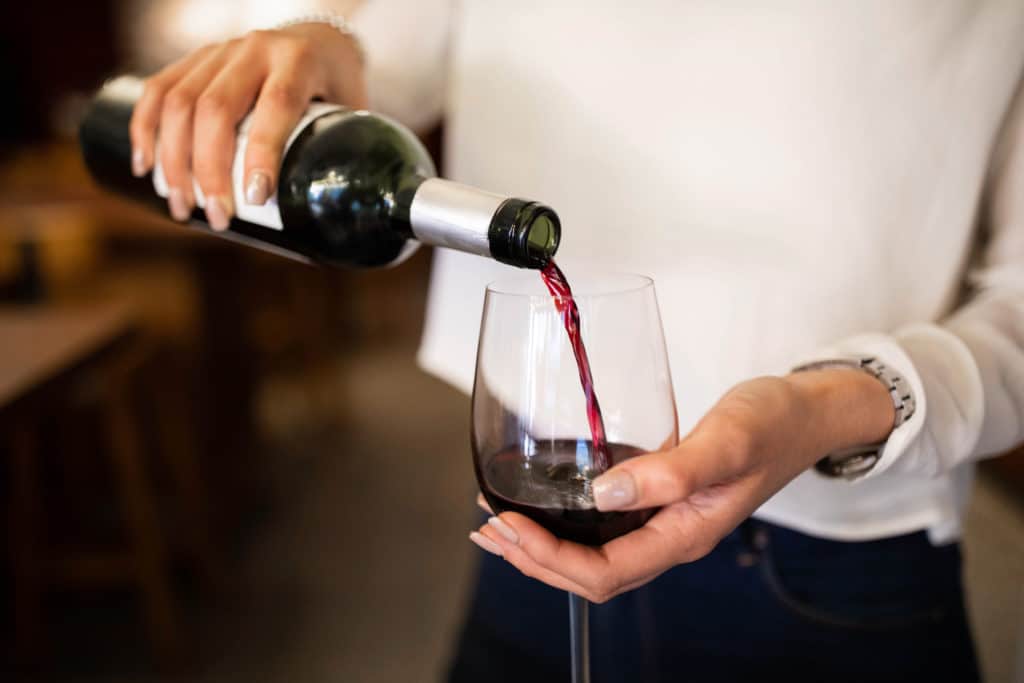Alcohol can be problematic. While it is legal for adults, it can still be dangerous, and many people do become dependent on this substance. Programs like our alcohol use treatment in Ohio that help people quit drinking altogether can be helpful, but there are plenty of different theories on the subject.
Comparing Abstinence vs. Moderation
There is a big difference between moderation and abstinence when it comes to alcohol. If you or someone you care about misuses alcohol, it is important to understand this difference and how effective each model is.
The Abstinence Model
The abstinence model for alcohol refers to refraining from all alcohol consumption. It focuses on the idea that controlled drinking is not realistic and a slippery slope. Abstinence from drinking is typically considered the traditional approach to treatment and is sometimes required in programs like Alcoholics Anonymous. Life-long abstinence from alcohol is often the end goal for many people who have an unhealthy relationship with alcohol, but getting to this point can be challenging. Some people may never get the care they need to start this journey and as a result, will never achieve abstinence. For those with more severe alcohol use disorders, trying to quit drinking cold turkey can also be dangerous to their health and in some cases, even deadly. To avoid these problems, we offer a medical alcohol detox and rehab in Ohio that safely weans someone’s body off of alcohol. While the result is abstinence from alcohol, getting here still involves controlled alcohol intake.
Alcohol Moderation Method
In contrast to abstinence is drinking in moderation. Alcohol moderation also sometimes thought of as controlled drinking involves careful monitoring of alcohol consumption to try to avoid problematic drinking. The idea behind drinking in moderation versus abstinence is that some people may not want complete abstinence from alcohol. While not as popular traditionally for treatment, the alcohol moderation movement has grown recently, and moderation management programs are on the rise. This model can be a type of harm reduction strategy for someone who is unwilling to give up alcohol completely but trying to decrease the amount and frequency of their intake. This may also be the approach for heavy drinkers looking to cut back, but there are some concerns with this approach to alcohol recovery for those with alcohol use disorders.
Drinking in Moderation vs. Abstinence Effectiveness
While many people and treatment centers follow the alcohol abstinence model, there are others that argue that drinking in moderation is effective. So, what is the truth? One research study on Veterans suggested that both models can decrease alcohol use to a degree, but those striving for abstinence were far more successful than those drinking in moderation. 84% of participants with a goal of abstinence met the criteria for NIAAA low-risk drinking guidelines compared to only 25% of those with the goal of drinking in moderation after 3 months.1 Another study found that drinking in moderation or engaging in “non-problem drinking” still saw positive outcomes but did not have lasting results like abstinence. Of those who were engaged in non-problem drinking a year after the study began, only 48% reported non-problem drinking or abstinence at later follow-ups. In contrast, 77% of those who were abstinent from alcohol at the one-year mark of the study continued to report non-problem drinking or abstinence at later follow-ups.2 Although the moderation management success rate may not be as high as abstinence, some people argue that one of the disadvantages of abstinence is that it can feel exclusive. When someone relapses, they may feel like they failed. At our Ohio residential treatment center, we understand that relapse is often a part of recovery and are here to help you wherever you may be in the recovery journey. Contact us today to learn more about us at The Bluffs and take a step toward life-long recovery.







